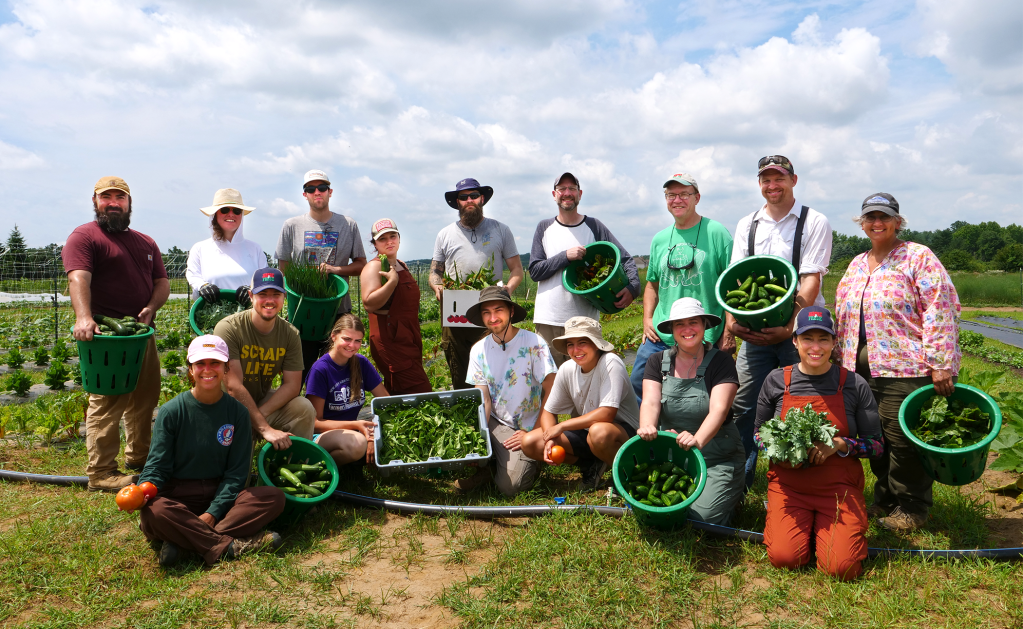From the fruits and vegetables in our fridges to the T-shirts in our closets and medicine in our cabinets, we rely on farmers to keep us fed, clothed, and healthy.
And as the global population continues to expand — expected to increase by 2.2 billion by 2050 — so will our demands from growers: They’ll need to produce around 70% more food than they are now, according to the American Farm Bureau Federation.
In the U.S., the median age of farmers is around 58, making them the oldest workforce in the country. So the next generation stepping in to keep the industry thriving is key. That’s where Rutgers University’s Beginner Farmer Training Program comes in.
Because family farms account for the vast majority, about 97% as of 2022, per the USDA, it can be difficult to break into the field if you weren’t raised in it. Programs like this one offer a way in for interested individuals without any prior ties or experience.
Christina Couch is one of those people. The 26-year-old previously worked in the restaurant industry, but has now spent seven days a week for the past few months under the sun on a 1-acre plot of land, tending to rows of vegetables and herbs.
She opted to get into farming after spending time in the kitchen as a line cook. “I just had this light bulb moment that I could grow this and help fill the gap,” Couch told CBS News, “so that we don’t have to get produce from so far away to put on the tables at restaurants.”
Bill Hlubik, an agricultural professor and third generation farmer, is serving as Couch’s mentor in the three-year Rutgers program, which starts with online classes before moving into hands-on learning and allows students to rent land and equipment. “We absolutely have to have the next generation of farmers to produce food for us,” he said.
Called RU Ready to Farm, the program was launched in 2020 with funding support from the USDA. Its enrollees are a diverse population, with 56% from minority groups.
Similar programs exist in other states as well. California, the top agriculture-producing state in the country, has a Beginning Farmer and Farmworker Training and Workforce Development Grant Program through its Department of Food and Agriculture.
A 2023 report from the U.S. Senate Committee on Aging advised that more funding should be ensured for training of the sort, stating that “Congress and the federal government must act proactively to retain and attract new farmers, invest in researching agricultural innovations to increase per acre yields, and prioritize domestic agricultural production before the nation becomes dependent on foreign markets for its food supply.”
Couch and others of her generation are doing their part, helping breathe new life into the industry. “We’re just going about farming a bit differently, a little bit against the grain, and leveraging things like social media, like fundraising, and just building communities that people are attracted to [and] want to support young farmers,” she told CBS.
She added: “It’s the hardest job I’ve ever had. It is really, really difficult, the physical labor and the heat of the summer, but at the end of the day, I wouldn’t trade it for anything.”











